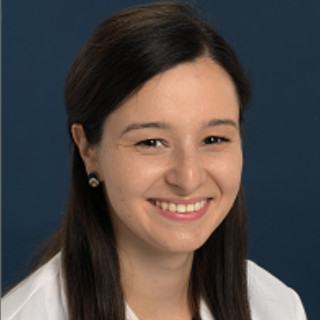Growing up, I remember the pager my dad wore clipped to his pants. His was for his work as a doctor, but plenty of non-medical people had them too, as cell phones did not yet exist. It feels a bit silly to admit this, but as a pre-med and medical student, I wished I had a pager. Maybe I was just wishing I was important enough to page, that someone needed me to help them with something. During medical school, I learned that we had progressed past the little black pagers, and now there were also so many other ways to get in touch with the house staff in the hospital. There were Voceras, a cell phone that was passed around by the residents, the classic little black pagers, and more.
By the time I got to my first day of residency, we were using TigerText, which is the secure messaging system I was instructed to download onto my phone. It was easier to send a message than it was on a pager: it didn’t have to be fewer than a certain amount of characters. You didn't have to wait by a phone after giving someone your extension. It was an app on your phone, so you didn’t have to carry another physical device. And then of course, there are pros that also feel like cons, though necessary for health care: If you do not open the message within a two minute time frame, the notification will continue going off until you do. It will get stronger and closer together. If the sender sees that you have not read the message, they can send you a priority message, which will send you an extremely loud notification, even if your phone is on silent. There is no way to sleep through it.
However, attaching your paging system to your phone — TigerText is just one example — makes it a little too easy to get into contact. Instead of dialing the resident pager, it's quite easy for the nurses to just look at who wrote the note on the patient that morning and send them questions, without realizing that the resident had rounded post 24-hr shift and is now at home sleeping. Instead of having to group your messages into a short phrase, or picking up the phone to go over the plan for the day, the care team of the patient can easily text you questions all day long.
"Hey, her Tylenol is ordered for indication of headache but she is experiencing mild pain. Can you change the order?"
"Hey, this is palliative, our recommendations are as follows."
"Hey, I have a new consult for you."
And one time, at 2 a.m. on a Thursday, "Hey, the patient needs a flu shot ordered."
One specific challenge of residency is that you are the middleman between nursing staff and the attending physicians. As a resident, you get the glory of doing the surgery, delivering the baby, caring for the patient, while in return answering all the pages and doing all the paperwork. Once you have established yourself as a reliable resident, the attendings trust you to manage patients and ask questions as needed. This teaches you independence and how to escalate care, and also allows the attending doctors not to get woken up all night long at home.
One terrible night as the chief resident, it felt like my phone was constantly going off. As the chief resident in OB, you manage everything except low-risk labor and triage. I had several ED consults, my intern was busy managing labor and triage, I took a patient to the OR for an ovarian torsion, and the nurses had several questions about the high risk patients and gyn-onc patients. My intern messaged me quite a few times as well for help. Nothing that I couldn't answer, but I could not do it all at once. In the morning, I was exhausted. I looked at the screen time app on my iPhone, and saw that overnight, I had received 728 pages and notifications.
Let's do some math. Night float is a 14 hour shift. 728 texts divided by 14 hours is 52 texts an hour. So for 14 hours long, I got a notification nearly every minute. Some of these notifications were critical.
"Hey, this is the ER resident. I have a patient here with an ovarian torsion."
"Hey Kathleen, the intern would like you to come into LDR 4, the baby's heart rate has been down for almost 5 minutes, and we are about to give terbutaline and open the OR for a crash c-section."
Others were not. Simply a "thank you!" (which is a misguided nicety at 3 a.m.), or "The patient has an itchy spot on her butt. I told her it looked fine, but she is insisting that a doctor looks at it."
Alarm fatigue is felt by many. Alarm fatigue occurs when health care staff become desensitized to safety alarms due to the sheer number of alarm signals. This can, in turn, lead to delayed responses or even missed alarms. In fact, research even demonstrates that the majority of alarms derived from continuous bedside monitoring devices are non-actionable.
I could not have provided good and safe patient care with a notification going off every minute. I even remember one time, my attending looking at me, saying “Focus on the patient on the operating table, Kathleen,” as I was trying to enter laparoscopically while giving the circulating nurse my phone password so she could turn the growling of my pager off, which was getting louder and closer together as I managed a busy floor of patients as a solo resident on call at our community hospital.
So how can we change this? We do get emails and professionalism training on “consult courtesy.” They encourage us to keep our messages to each other concise and to end with a “thank you” in advance, to cut down on the notifications one will receive.
On the days that I get pages non-stop, I think back to my pre-residency self who wished I had a pager, and remark, “What was I thinking!?” But on the flip side, as I have progressed through to my senior years of residency, I now can troubleshoot most issues I am paged for without help. I look forward to the days I no longer hold all the residency pager roles and get paged for silly things like Tylenol adjustment orders, but will still happily come to evaluate a patient in need.
How would you solve alarm fatigue? Share your solutions in the comments.
Kathleen Ackert is a resident physician in obstetrics & gynecology at St. Luke’s University Health Network. She is a graduate of the Philadelphia College of Osteopathic Medicine and Siena College. When she is not in the hospital, she can be found in coffee shops writing narrative medicine pieces or eating in restaurants that offer low-lit dining experiences. She enjoys exploring the latest fitness craze, watering her house plants, and instagramming pictures of fancy lattes at @caffeinewithkathleen. She was a 2021-2022 Doximity Op-Med Fellow, and continued as a 2022-2023 Doximity Op-Med Fellow.
Animation by Diana Connolly







